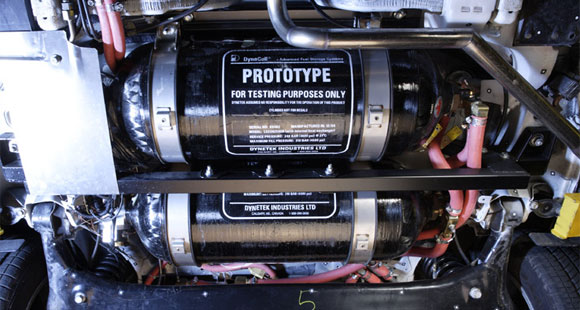Hydrogen is considered to be one of the lightest elements but its energy content for each weight unit is the highest. This makes it very difficult to store hydrogen especially if it is in large quantities. Hydrogen storage becomes a big problem especially if it is being transported in a vehicle. This gas is usually stored because it is used by various renewable energy technologies including wind and solar because they are not constant.
Transportation
When hydrogen is being transported, it is compressed and kept in high-pressure composite and metal storage tanks. It can also be transported in vehicles once it has been cooled into a liquid and kept in some super-insulated tanks.
The High Pressure tanks
High-pressure tanks are used for hydrogen storage in several parts of the world. When this method is applied, driving ranges are inadequate and the energy that is used to compress the gas limits the efficiency of the storage method. The size and weight of the tanks that are used also make this method unsuitable.
Storage procedure
Storing hydrogen in liquid form is a suitable method because it reduces the energy density of the gas. The main concern about the use of this method is that some of the gas is lost during transportation. The transportation tanks also require improved insulation in order to minimize the loss of the gas as a result of hydrogen boil-off. The energy that is required to cool and turn the gas into liquid is a big concern.
New researches
A lot of research is being carried out at the moment to look for more efficient ways of storing hydrogen especially when it needs to be transported over long distances. One of the storage technologies that are being researched is the use of metal hydride. This technology applies metal alloys and various metals to absorb the gas. Moderate temperature and pressure is applied to create hydrides. The tanks used have granular metals that are used to absorb the gas and release it. Heat is usually applied in this technology.

The challenges of hydrogen storage
There are various challenges when it comes to hydrogen storage. These challenges include weight, size, capacity, cost and efficiency. Durability is also an issue for hydrogen storage. Storing hydrogen is very expensive at the moment compared to storing petroleum fuels. The components and materials that are required for hydrogen storage are too heavy and this makes it difficult to transport the gas. The main challenge is finding an appropriate way to keep the gas to meet the traditional driving range of 300 miles.
Hydrogen storage is also challenging because it takes too long to refuel the storage systems. Researchers are looking for storage systems that can be refueled in a few minutes. Hydrogen can also be stored underground in large quantities. The gas can be stored in salt domes, caverns and gas and oil fields that are no longer in use. When the gas is stored in caverns, it can be kept for several years without any difficulties. This storage method is only suitable if the gas is being stored as grid energy.